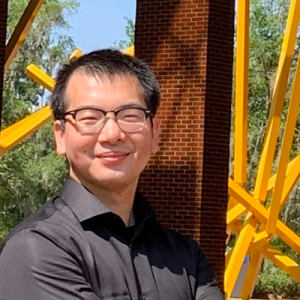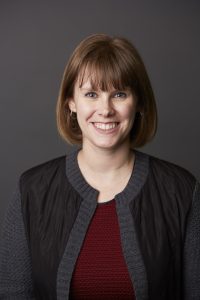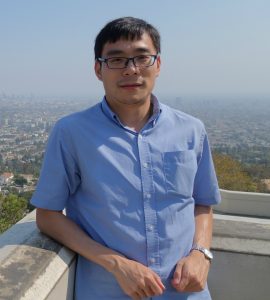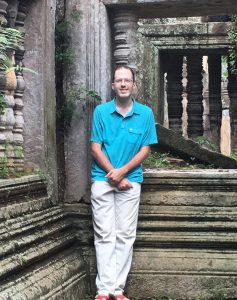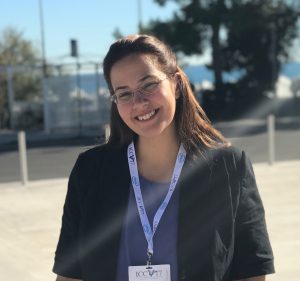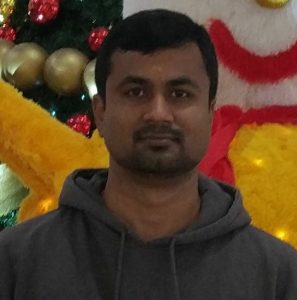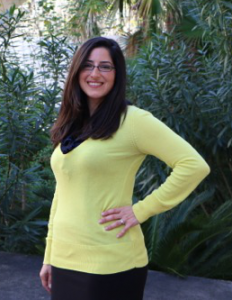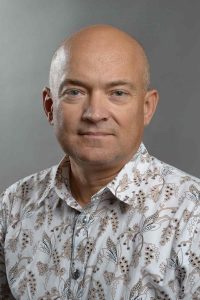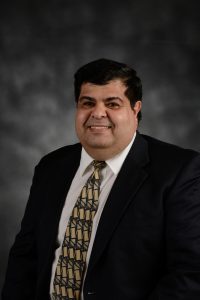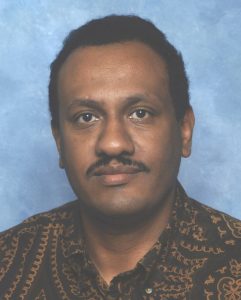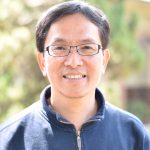Pingjun ChenPhD Year: 2020 |
|
Susan MeerdinkPost-Doc 2018-2020 |
|
Yuan ZhouPhD Year: 2018
|
|
Leila KalantariPhD Year: 2017 |
Dissertation: Possibilistic Classification Using Gaussian Process Prior |
Joshua HortonPhD Year: 2014
|
Joshua Horton’s PhD research focused on Normalized Maximum Likelihood on Variable Length Sequence Datasets. He’s presently in Phnom Penh, Cambodia doing linguistic software development work with SIL (https://www.sil.org/) and NPIC (http://www.npic.edu.kh/), aiding in efforts toward language preservation and literacy development by providing custom-tailored software, such as Keyman, a cross-platform virtual keyboarding solution (https://www.keyman.com) and part of a reference implementation for Unicode’s upcoming UTS #35 for LDML. (http://unicode.org/reports/tr35/tr35-keyboards.html). He also provides a training course to bolster the technical skills of some of the Computer Science faculty at NPIC. His interests include unsupervised machine learning, computational linguistics, and agent-based simulation. |
Dmitri DranishnikovPhD Year: 2014 |
Dissertation: Bayesian Hyperspectral Unmixing and Endmember Detection with MultiVariate Beta Distributions |
Taylor GlennPhD Year: 2013 |
Dissertation: Context-Dependent Detection in Hyperspectral Imagery |
Ryan ClosePhD Year: 2011 |
Dissertation: Endmember And Proportion Estimation Using Physics-Based Macroscopic And Microscopic Mixture Models |
Seniha Esen YukselPhD Year: 2011 http://www.ee.hacettepe.edu.tr/~eyuksel/ PARRSLAB: http://parrslab.ee.hacettepe.edu.tr/
|
Seniha Esen Yuskel’s PhD research focused on Context–Based Classification Via Data–Dependent Mixtures Of Logistic And Hidden Markov Model Classifiers. Seniha Esen Yuksel is an assistant professor at the Hacettepe University, Department of Electrical and Electronics Engineering. She is also the director of the Pattern Recognition and Remote Sensing Laboratory, PARRSLAB, where she is doing research on machine learning and computer vision with applications in defense and medical industry. Over the past years, PARRSLAB has been funded largely by Tubitak (the national science foundation of Turkey), and has several ongoing projects with companies in the defense industry. Her latest projects include fusion of hyperspectral and lidar data, target detection from ground penetrating radar data, landmine and explosives detection. At Hacettepe University, Dr. Yuksel has taught pattern recognition, signals & systems, probability and random variables, introduction to programming, and fundamentals of digital systems. Dr. Yuksel’s lab always welcomes collaborators, talented graduate as well as undergraduate students. |
Ganesan RamachandranPhD Year: 2010
|
Ganesan Ramachandran’s PhD research focused on Fast Physics-Based Methods for Wideband Electromagnetic Induction Data Analysis. He leads inter-disciplinary team of clinicians, scientists and marketers to define, design and develop healthcare solutions at Philips Research, India. |
Gyeongyong HeoPhD Year: 2009 |
Dissertation: Robust Kernel Methods in Context-dependent Fusion |
Xuping ZhangPhD Year: 2009 |
Dissertation: Automatic Feature Learning and Parameter Estimation for Hidden Markov Models Using MCE and Gibbs Sampling |
Raazia MazharPhD Year: 2009 |
Dissertation: Optimized Dictionary Design and Classification Using the Matching Pursuits Dissimilarity Measure |
Alina ZarePhD Year: 2008 |
Alina Zare’s PhD research focused on Hyperspectral Endmember Detection and Band Selection Using Bayesian Methods. Professor of Electrical and Computer Engineering at the University of Florida. She runs the Machine Learning and Sensing lab (called GatorSense for short) and teaches and conducts research in machine learning and pattern recognition with a focus on remote sensing applications. Outside of research/teaching, she is a mother, wife, and rower. |
Jeremy BoltonPhD Year: 2008
|
Jeremy Bolton’s PhD research focused on Random Set Framework for Context-Based Classification. He is currently an Assistant Teaching Professor at Georgetown University where he has had the pleasure of teaching many core Computer Science courses and courses focusing on Computer Vision and Image Processing. Research interests lie at the confluence of Machine Learning, Computer Vision, and Remote Sensing. Other interests include travel, hiking, photography, and sailing. See his website for more details. |
Andres Mendez-VazquezPhD Year: 2008 |
Dissertation: Information Fusion and Sparsity Promotion using Choquet Integrals |
John McElroyPhD Year: 2007 |
Dissertation: Piecewise Linear Lattice Based Associative Memories |
Mihail PopescuPhD Year: 2003
|
Mihail Popescu’s PhD research focused on New Sequence Processing Algorithms using Hidden Markov Models. He is an Associate Professor of Biomedical Informatics and Adjunct Associate Professor of Nursing and Electrical and Computer Engineering at the University of Missouri, Columbia, MO. His research areas include pattern recognition, image processing, computational intelligence and eldercare technologies. He is a senior IEEE member. |
Ali Koksal HocaogluPhD Year: 2000 |
Dissertation: Choquet Integral Based Morphological Operators with Applications to Object Detection and Information Fusion |
Wen-Tsong ChenPhD Year: 2000 |
Dissertation: Word Level Training of Handwritten Word Recognition Systems |
Nipon Theera-UmponPhD Year: 2000
|
Nipon Theera-Umpon’s PhD research focused on Morphological Granulometric Estimation with Random Primitives and Applications to Blood Cell Counting. He received his B.Eng. (Hons.) degree from Chiang Mai University, M.S. degree from University of Southern California, and Ph.D. degree from the University of Missouri-Columbia, all in electrical engineering. He has been with the Department of Electrical Engineering, Chiang Mai University since 1993. He has served as editor, reviewer, general chair, technical chair and committee member for several journals and conferences. He has been bestowed several royal decorations and won several awards. He was associate dean of Engineering and chairman for graduate study in electrical engineering. He is serving as the director of Biomedical Engineering Institute and the chairman for graduate study in biomedical engineering, Chiang Mai University. He is a member of Thai Robotics Society, Biomedical Engineering Society of Thailand, Council of Engineers in Thailand. He has served as Vice President of the Korea Convergence Society and Vice President of the Thai Engineering in Medicine and Biology Society. Dr. Theera-Umpon is a senior member of the IEEE, and is a member of IEEE-IES Technical Committee on Human Factors, and IEEE-CIS Travel Grant Subcommittee. He has published more than 160 full research papers in international refereed publications. His research interests include Pattern Recognition, Digital Image Processing, Neural Networks, Fuzzy Sets and Systems, Machine Learning, Big Data Analysis, Data Mining, Medical Signal and Image Processing. |
Mohamed KhabouPhD Year: 1999
|
Mohamed Khabou’s PhD research focused on Improving Shared-Weight Neural Networks Generalization Using Regularization Theory and Entropy Maximization. His current research focuses on using smart device technology to improve quality of life for older people. He is collaborating with University of West Florida (UWF) colleagues to combine off-the-shelf devices with novel computer algorithms to build a SMILE (Smart Independent Living for Elders) Home in which elders and their families can monitor and improve their daily lives. Khabou’s earlier projects included the design of automatic systems to index and retrieve images of historical mosaics, studying eigenvalue-based features, automatic recognition of actigraphy signals, and studying the effect of distance learning on student performance. Dr. Khabou currently serves as the Chair of the Electrical and Computer Engineering Department at UWF. |
Magdi MohamedPhD Year: 1995
|
Magdi Mohamed’s PhD research focused on Handwritten Word Recognition using Generalized Hidden Markov Models. Magdi A. Mohamed (IEEE S’93-M’93-A’95) received the B.Sc. (Electrical Engineering) degree from the University of Khartoum, Khartoum, Sudan, and the M.S. (Computer Science) and Ph.D. (Electrical and Computer Engineering) degrees from the University of Missouri-Columbia, in 1983, 1990 and 1995, respectively. From 1985 to 1988, he worked as a Teaching Assistant at the Computer Center, University of Khartoum. He also worked as a Computer Engineer for consultation and hardware support at ComputerMan Ltd., Khartoum, Sudan, and as an Electrical and Communication Engineer at Sudan National Broadcasting Corporation in Omdurman, Sudan. From 1991 to 1995 he was a Research and Teaching Assistant in the Department of Electrical and Computer Engineering, University of Missouri-Columbia. He worked as a Visiting Professor in the Computer Engineering and Computer Science Department at the University of Missouri-Columbia from 1995 to 1996. He joined Motorola Inc. in 1996 and worked as a Principal Staff Engineer at Motorola Labs, Physical and Digital Realization Research Center of Excellence, in Schaumburg, Illinois. He was inducted into Motorola Science Advisory Board Association (SABA) in 2007. Dr. Mohamed worked as a Technical Director at NIITEK, a Chemring Group Company in Sterling, Virginia from 2008 to 2011. He worked as a Principal Engineer at Qualcomm Inc., Multimedia R&D and Standards, Computer Vision Systems in San Diego, California, between from 2012 to 2017. His research interests include multimedia, automatic target recognition, landmine detection, real-time change detection, pipe inspection, offline and online handwriting recognition, optical motion tracking, digital signal, image and video processing, computer vision, fuzzy sets and systems, neural networks, pattern recognition, parallel and distributed computing, nonlinear and adaptive modeling techniques, machine intelligence, fractals and chaos structures, energy-aware processing, and context-aware computing. Dr. Mohamed was honored for outstanding research contributions with several awards including the “2003 IEEE Transactions on Fuzzy Systems Outstanding Paper Award” for the papers “Generalized Hidden Markov Models – Part I and II” presented by IEEE Neural Network Society in 2003, among others. |
Yonggwan WonPhD Year: 1995 |
Dissertation: Nonlinear Correlation Filter and Morphology Neural Networks for Image Pattern and Automatic Target Recognition |
Jung-Hsien ChiangPhD Year: 1995
|
Jung-Hsien Chiang’s PhD research focused on Hybrid Fuzzy Neural Systems for Robust Handwritten Word Recognition. Dr. Chiang performed his first research in computational intelligence in 1995 when he developed on algorithms for multimedia information server in cyber community. He led teams involved in the development of adaptive real-time multimedia transmission mechanism in intelligent gateway for D-Link Inc. in Taiwan. He developed and implemented fuzzy set based algorithms for user profiling and data mining. Dr. Chiang and his students created the technological foundation for the interpretations of fuzzy clustering by two novel algorithms based on support vectors, “adaptive cell growing” and “fuzzy cover”, which use competitive multisphere cells and fuzzy proximate functions for the iterative learning process respectively. The algorithms facilitate the exploration of grouping and separation uncertainty in producing meaningful interpretations of structure in the data. This research has been cited more than 450 times in Google Scholar. In the early 2000s Chiang and his colleagues began exploring the idea of fuzzy algorithms in bioinformatics. Dr. Chiang’s prior research in bioinformatics has focused on intelligent text mining. He has contributed new techniques for developing biomedical text mining models, including data analytics, pattern extraction and literature classification. This leads to implementation of software prototypes to assist biomedical researchers in rapidly extracting useful knowledge from huge number of biomedical documents and to improve understanding of gene function annotation in the Human Genome Project. In 2003 the team was able to provide the available open source and the results have been published in Bioinformatics (Oxford University Press). This was the first study on the developing an ontology-based textmining system to efficiently extract knowledge from biomedical literature about the functions of gene products, and the web service has been utilized by more than 20 research teams and accessed more than 5,000 times since 2003. His current research interests include fuzzy modeling in bioinformatics, social text mining, pattern clustering, and modeling of systems biology problems. The research team he leads has cooperated with the Institute for Systems Biology (ISB) in Seattle, one of the top biomedical research organizations in the world. By combining its specialty in bioinformatics and computational biology, they assist the researchers in ISB to find either possible novel cancer related mechanisms or obtain a great quantity of experimental data for further analysis. |
